Ghana will go to the polls on December 7, 2024, seeking to consolidate a democracy that has been the envy of many African countries. One of the candidates seeking the people’s mandate is John Dramani Mahama, leader of the opposition National Democratic Congress.
He is no stranger to Ghana’s politics. By far the most experienced of the 12 candidates in the December elections, John Mahama seeks to return to a position he vacated eight years ago after losing power to the New Patriotic Party’s Nana Akufo-Addo.
In a no-contest election on Oct. 13, 2023, the National Democratic Congress voted for John Mahama to be re-elected as the party’s flagbearer in this year’s (2024) elections. He polled over 98% of the votes cast by the delegates.
Described by his supporters as the ‘nation builder,’ John Mahama remains the candidate who stands between the NPP and an ambition to break the eight. He remains poised to scuttle that ambition with a clarion call to the people of Ghana to help reset an economy he believes has been thrown into shambles by the NPP.
With him is a promise of a 24-hour economic policy that would stimulate growth and help propel the country’s economy back on track.
Touted as a communicator par excellence, ex-president John Mahama is responsible for convincing the citizens to return to the NDC and him, whom they rejected in 2016 and 2020. But the grass is greener, and the soil softer in 2024. No party has broken the eight. And the party that seeks to do so always has a mountain of corruption allegations to deal with, strangling economic challenges to contend with as happened to Jerry John Rawlings’ NDC government in 2000, Kufuor’s NPP government in 2008, Atta Mills’ and John Mahama’s NDC government in 2016 and now to Akufo-Addo’s NPP government in 2024.
Mahama’s Credentials
John Mahama is perhaps the country’s most decorated political officeholder. He started his primary education at Achimota Basic School and then continued at Ghana Secondary School in Tamale.
Mahama obtained his Bachelor’s Degree in History from the University of Ghana in 1981. He started teaching at his old school, Ghana Secondary School.
He also obtained a Master of Arts in Communication Studies from the University of Ghana. He did not stop there; in 1988, he returned to the Institute of Social Science in Moscow, Russia, where he earned a degree in Social Psychology.
After completing his studies, Mr Mahama came to Ghana to serve his country. He joined the Japanese Embassy in 1995. There, he was in charge of research affairs and culture. He served as a foreign affairs officer at Plan International in Ghana.
Mr John Mahama was born into politics. His father, Mr Emmanuel Adama Mahama, was a legislator for the Gonja West constituency. His father worked as the first district governor under Dr Kwame Nkrumah.
The former legislator began his political career in Bole Bamboi, where he was a parliamentary candidate in elections. He was the Member of Parliament for the Bole Bamboi community from 1996 to 2004.
In 1997, John Mahama was Deputy Minister of State for National Communications in President John Rawlings’s administration. He became the Director General of the Institute of National Communications from 1998 to 2001.
From 2001 to 2005, Mahama was the communications spokesperson for the minority in parliament and then became the foreign affairs spokesperson from 2005 to 2008.
John Mahama was named running mate to former President John Evans Atta Mills, the flag bearer in the 2008 elections, and became vice president on Jan 7, 2009.
When Atta Mills died on July 24, 2012, he was sworn in as President of Ghana until re-elected in the Dec. 7, 2012 elections. In the 2016 elections, Mahama lost his position as president after a mammoth defeat to President Nana Akufo-Addo.
Former President Mahama has written many books, including My First Coup D’Etat: Memories From the Lost Decades of Africa,’ which he released in 2022.
Experience
The NDC leader comes to the table with a towering level of experience, having occupied the highest position in the country for at least four years. A man with a calm demeanour, ex-president John Mahama’s resolve to an issue-based politics is never in doubt. In his first tenure, Mahama became synonymous with development projects, including health facilities, roads, and education. For the many who demand a return to John Mahama, questions are asked about his ability to keep the lights on during his tenure and to manage the economy in a way that would not engender another to return to the IMF.
Thus far, the affable communicator has shared his commitment to reset and rebuild the country and hold the former government officers accountable for the many allegations of corruption.
What dominates Ghana’s political discourse is who will win the election on December 7, 2024.






